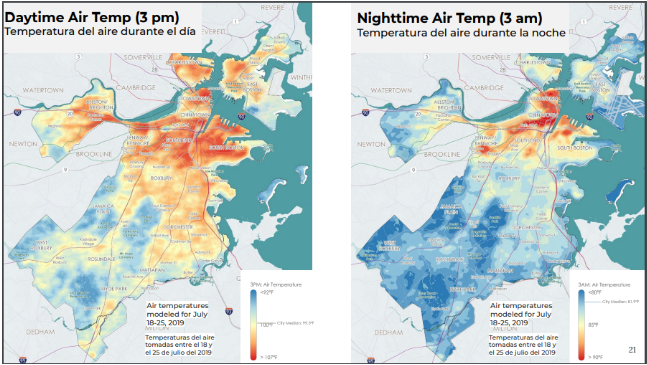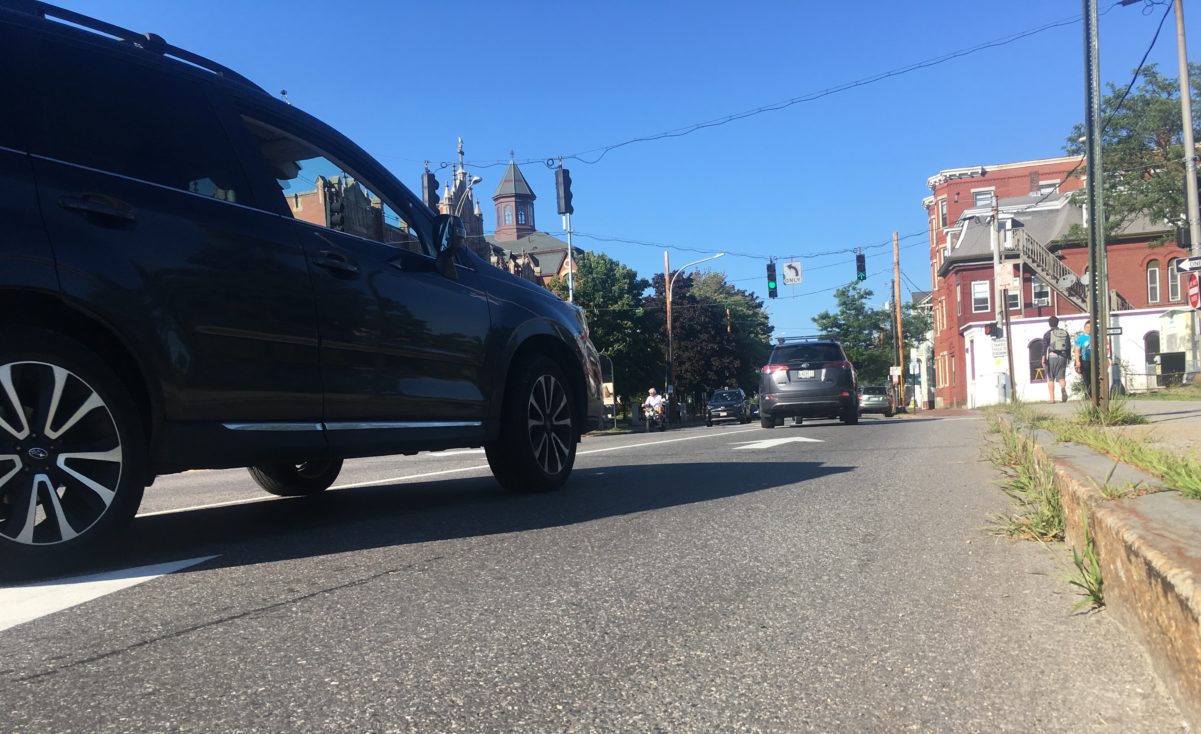The long-term climate impacts of the climate pollution from cars and trucks are well documented, but the daily short-term effects of the wasted heat energy radiating from engine blocks and exhaust pipes are making this summer's heat waves much more miserable for city-dwellers.
As anyone who's walked or biked across a busy street knows, car and truck engines emanate oven-like blasts of heat into their surroundings.
In a 2015 study published in Scientific Reports, Chinese researchers Canbing Li, Yijia Cao, Mi Zhang, Jianhui Wang, Jianguo Liu, Haiqing Shi, and Yinghui Geng estimated that internal combustion engines in Beijing were responsible for a one-degree Celsius (1.8 degrees F) increase in the city's summer ambient air temperature, which in turn forced local air conditioners to work an extra 14.44 gigawatt-hours to keep people cool over the course of a year.
Beijing is much larger than any city in Massachusetts, but the researchers provide some estimates that are applicable here: they estimated that the average light-duty motor vehicle produced 6.31 million joules of heat per mile – about the equivalent of leaving a 1500-watt space heater on for 70 minutes.
Multiply that by the roughly 10 million miles* that motorists drive inside Boston city limits on an average day, and that's a lot of heat on our streets.

The northeast's recent heat waves have been even worse for city-dwellers thanks to the "urban heat island effect," the phenomenon by which waste heat from cars and air conditioners, combined with the heat-absorbing properties of pavement and rooftops, traps hot air and pollutants in built-up areas.
The heat emanating from cars every day contributes to a vicious cycle: as the city gets hotter, building air conditioners work harder, pumping even more heat outdoors, and the pavement of parking lots and highways retains all that warmth for hours after the sun goes down.
The research on Beijing from Li et al. suggests that electric vehicles could make a big dent in the heat island effect – but while they are more efficient, even electric cars end up converting kinetic energy into waste heat as they move about a city, and their drivers will still demand vast, sun-baked plains of asphalt to drive and park on.
An alternative solution comes from another recent study on urban heat islands from Carly Ziter at the University of Wisconsin (based on research data collected from a bike-mounted weather station).
Ziter found that a healthy urban forest canopy – one where about half of any given city block is shaded under tree branches – could potentially counteract the heat island effect.
This suggests that even a dense downtown area could cool off by banning cars and replacing parking lots and driving lanes with shady gardens.
Unfortunately, that's an idea that will make some motorists extremely hot under the collar.
* See our August 8 post, "Uber/Lyft Admit Responsibility For A Significant Share of Boston’s Traffic," for official estimates of the monthly total "vehicle miles traveled" for Boston and Massachusetts as a whole.






